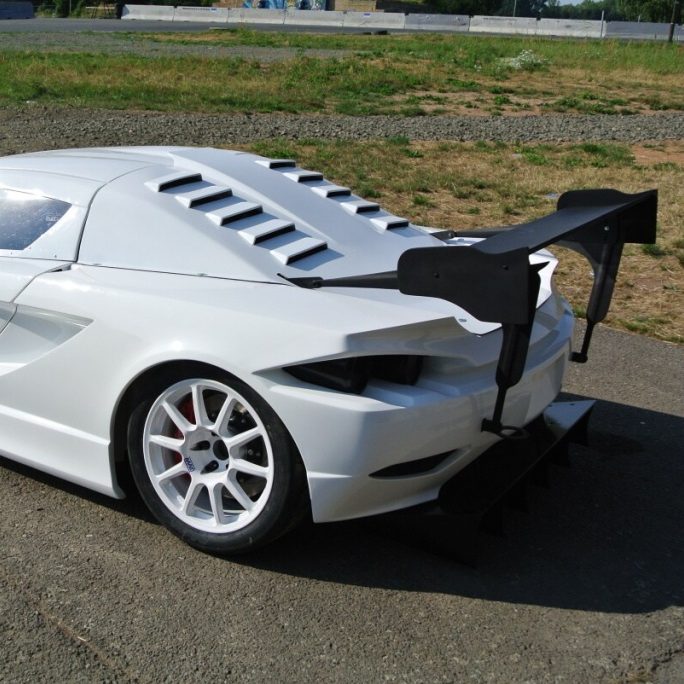Building a kit car can be an exciting and rewarding project for automotive enthusiasts. A kit car is a vehicle that can be assembled from a set of parts, usually sold by a manufacturer. This approach not only offers the chance to create a unique car but also allows for customization and personalization. While undertaking such a project can be thrilling, it also presents a unique set of challenges. This article will explore the benefits and challenges of building your own kit car, offering insights to help you decide if this project is right for you.
Understanding Kit Cars
What is a Kit Car?
A kit car is typically sold as a collection of parts, including the chassis, body, and various components needed to assemble the vehicle. Buyers receive detailed instructions and a parts list, guiding them through the assembly process. Kit cars can range from classic sports cars to modern replicas, providing enthusiasts with numerous options to choose from. The allure of these vehicles lies in their diversity. Each kit can be customized to fit the builder’s personal preferences and specifications.
Many people are drawn to kit cars due to their unique designs. Unlike mass-produced vehicles, a kit car often stands out on the road. Builders can select specific colors, materials, and accessories, resulting in a one-of-a-kind automobile. This individuality can bring a sense of pride and accomplishment. Owning a personalized vehicle is a powerful motivator for many enthusiasts.
Different Types of Kit Cars
Kit cars come in various styles and configurations. Some popular types include sports cars, off-road vehicles, and replicas of classic cars. For instance, the Cobra replica is a popular choice for enthusiasts who admire the classic Shelby Cobra. Off-road kits allow builders to create rugged vehicles capable of tackling tough terrains. Each type of kit car has its specific assembly challenges and requirements.
Moreover, some kits are designed to accommodate specific engines. Builders can choose engines that fit their performance goals or fuel efficiency preferences. This flexibility allows for a level of customization that many factory-made vehicles do not offer. As a result, the kit car market can cater to diverse automotive tastes, making it appealing to a broad audience of car enthusiasts.

The Benefits of Building a Kit Car
Customization and Personalization
One of the most significant advantages of building a kit car is the level of customization available. Builders can select components that reflect their tastes and preferences. This could include everything from the car’s color to the type of interior upholstery. The ability to personalize a vehicle makes the process of building a kit car especially appealing.
Furthermore, customization allows builders to focus on specific performance aspects. For example, someone who prioritizes speed might choose a lightweight body and a powerful engine. Another builder might prioritize comfort and opt for a more luxurious interior setup. This freedom to customize means each kit car becomes a personal project that truly reflects the builder’s vision.
Cost-Effectiveness Compared to Factory Cars
Building a kit car can also be more cost-effective than purchasing a new, factory-built car. While the initial investment may seem high, especially with premium kits, the overall costs can result in savings. Factory models often include high markups for the brand and dealer network. By purchasing a kit, builders can cut out these middlemen. This allows for a more budget-friendly approach, particularly if you are handy and can perform the assembly yourself.
Additionally, kit cars can be built using components from other vehicles, which can further reduce costs. For example, many kit cars require a donor vehicle to supply parts such as the engine and transmission. These parts can be sourced from used cars, further driving down the overall cost. This can be particularly appealing for those who want a unique vehicle but may have budget constraints.

Enhancing Your Automotive Knowledge
Gaining Valuable Skills
Constructing a kit car is an excellent way to develop and enhance various automotive skills. Builders gain practical experience in mechanical engineering, electrical systems, and automotive design. This hands-on learning opportunity can be invaluable for enthusiasts. Naturally, this experience can translate well into various automotive careers or hobbies.
As you assemble the car, you will learn how various automotive systems interact. Knowledge about engine tuning, suspension setup, and electrical wiring can be significantly beneficial. Those looking to expand their mechanical knowledge often find this aspect of the kit car building experience incredibly rewarding. The skills learned can be applied to future automotive projects, making you more confident in your abilities as a builder.
Community and Camaraderie
Building a kit car often leads builders to connect with like-minded enthusiasts. Numerous online forums and local clubs exist, connecting individuals who share this passion. These communities can provide support, advice, and inspiration. Engaging with others in the community can lead to invaluable information regarding the assembly process and troubleshooting tips.
Sharing experiences with fellow builders fosters camaraderie. Many enthusiasts participate in organized events, where they can showcase their projects to others. This social aspect adds another layer of enjoyment to the overall experience. Involvement in such communities can enhance your passion for automotive culture and foster lifelong friendships.

The Challenges of Building a Kit Car
Time Commitment
While building a kit car can be rewarding, it does require a significant time investment. Depending on the complexity of the kit, assembly can take anywhere from several weeks to even months. It is essential for builders to set realistic expectations regarding the amount of time required. This can be especially challenging for first-time builders who may not fully understand the intricacies involved.
Furthermore, the time required may vary based on individual schedules. Balancing a kit car project with work, family, and other commitments can be tricky. It is vital to remain organized and set aside dedicated time for the build. Managing time effectively ensures progress stays on track and can make the process much more enjoyable.
Technical Challenges
Assembling a kit car involves numerous technical challenges. Builders must understand various systems, including wiring, suspension geometry, and engine tuning. While detailed instructions often accompany kits, not all builders will have technical backgrounds. This means that some may struggle more than others as they navigate unfamiliar territory.
Additionally, not all kits are created equal. Some kits come with extensive resources and support, while others may lack sufficient documentation. This disparity can create frustration for builders who may find themselves needing to seek outside help. To overcome these challenges, builders should be open to learning and seek resources, such as forums and instructional videos, to fill any knowledge gaps.

Legal and Regulatory Considerations
Understanding Local Regulations
Building a kit car also involves navigating various legal and regulatory requirements. Each state or country has different laws regarding vehicle assembly, registration, and emissions. Builders must research local regulations to ensure compliance. Failure to adhere to these regulations could lead to significant issues during the registration process or even result in legal complications.
Before starting your build, it is crucial to verify the specifics surrounding inspections and registrations in your area. Generally, kit cars must pass inspections to ensure safety and compliance with environmental standards. Understanding these regulations can help avoid headaches later in the process. By being proactive, builders can save time and unnecessary frustration.
Insurance Challenges
Another consideration for kit car builders is obtaining insurance. Traditional auto insurance policies may not cover kit cars, particularly during the building process. Therefore, builders often need to research specialty insurance providers that tailor policies specifically for custom-built or modified vehicles. This can be a cumbersome task that may involve additional paperwork and verification.
Moreover, obtaining insurance for a newly completed kit car might come with its own challenges. Some insurance companies view kit cars as higher risks, potentially resulting in increased premiums. Ultimately, understanding the insurance landscape helps builders anticipate challenges and plan accordingly. Engaging with knowledgeable agents can simplify the process and provide clarity on coverage options.

Finding the Right Kit
Researching Quality Kits
When considering building a kit car, research is essential to find the right kit. With numerous manufacturers and styles available, it is vital to evaluate quality, support, and reputation. Reading reviews, participating in forums, and attending car shows can provide valuable insights. Engaging with experienced builders can help narrow down options and highlight reputable brands.
It is also beneficial to consider the availability of replacement parts and customer support offered by manufacturers. High-quality kits should come with comprehensive instructions and ample resources. These factors can make a substantial difference in the build process and overall satisfaction. Investing time in research pays off when it comes to the quality and reliability of the final product.
Assessing Your Skill Level
Additionally, assessing your skill level before choosing a kit is important. Some kits require advanced technical knowledge or mechanical experience. Beginners may want to start with more straightforward kits that provide a gentle learning curve. Selecting a kit that matches your skillset can ensure a more enjoyable and successful building experience.
For those who may feel uncertain about their skills, seeking mentorship from experienced builders can be beneficial. Joining local car clubs or engaging in online communities can provide opportunities for hands-on assistance. Building a kit car is not just about the product but also the experience. Seeking guidance can enhance confidence and lead to a more fulfilling journey.
Celebrating the Accomplishment
The Joy of Finishing Your Build
Upon completing a kit car, builders often experience immense satisfaction. The joy of driving a vehicle that you assembled with your own hands is rewarding. The culmination of weeks or months of hard work transforms into a tangible and functional piece of art. Many builders see their completed kit car as a personal achievement, celebrating the countless hours spent in the garage.
Moreover, the excitement continues beyond the initial completion. Many enthusiasts choose to join car shows or clubs, showcasing their restored or custom-built vehicles. These events provide an opportunity for builders to share their experiences and connect with others who have a passion for cars. This community can amplify the joy and pride of ownership, transforming a personal victory into a shared celebration.
The Ongoing Journey
The journey does not end once the kit car is built. Many builders choose to continue making modifications or upgrades. This ongoing engagement with their vehicles can lead to further skill development, learning, and enjoyment. Whether it’s enhancing the engine, updating the interior, or adding new technology, the possibilities are endless.
Additionally, sharing your experience with others can inspire new builders and enthusiasts. Participating in online forums, writing blogs, or attending meet-ups allows you to influence others’ journeys. The automotive community thrives on shared stories and experiences. Your journey can encourage new builders to take the plunge and explore the world of kit cars.
Conclusion
Building a kit car is an endeavor filled with benefits and challenges. There is immense satisfaction in customizing and assembling a unique vehicle that reflects your personality and style. The experience provides valuable knowledge and skills while creating opportunities for community engagement. However, it requires significant commitment in terms of time, technical understanding, and consideration of legal obligations.
While potential builders must be prepared for challenges, the rewards clearly outweigh the difficulties. Creative freedom, the chance to learn, and the joy of completing a one-of-a-kind car make the process worthwhile. For automotive enthusiasts seeking an exciting journey, building a kit car offers both a thrilling project and an avenue for self-expression. The experience can lead to increased knowledge, personal fulfillment, and a deeper appreciation for the art of automotive design and engineering.

Leave a Reply